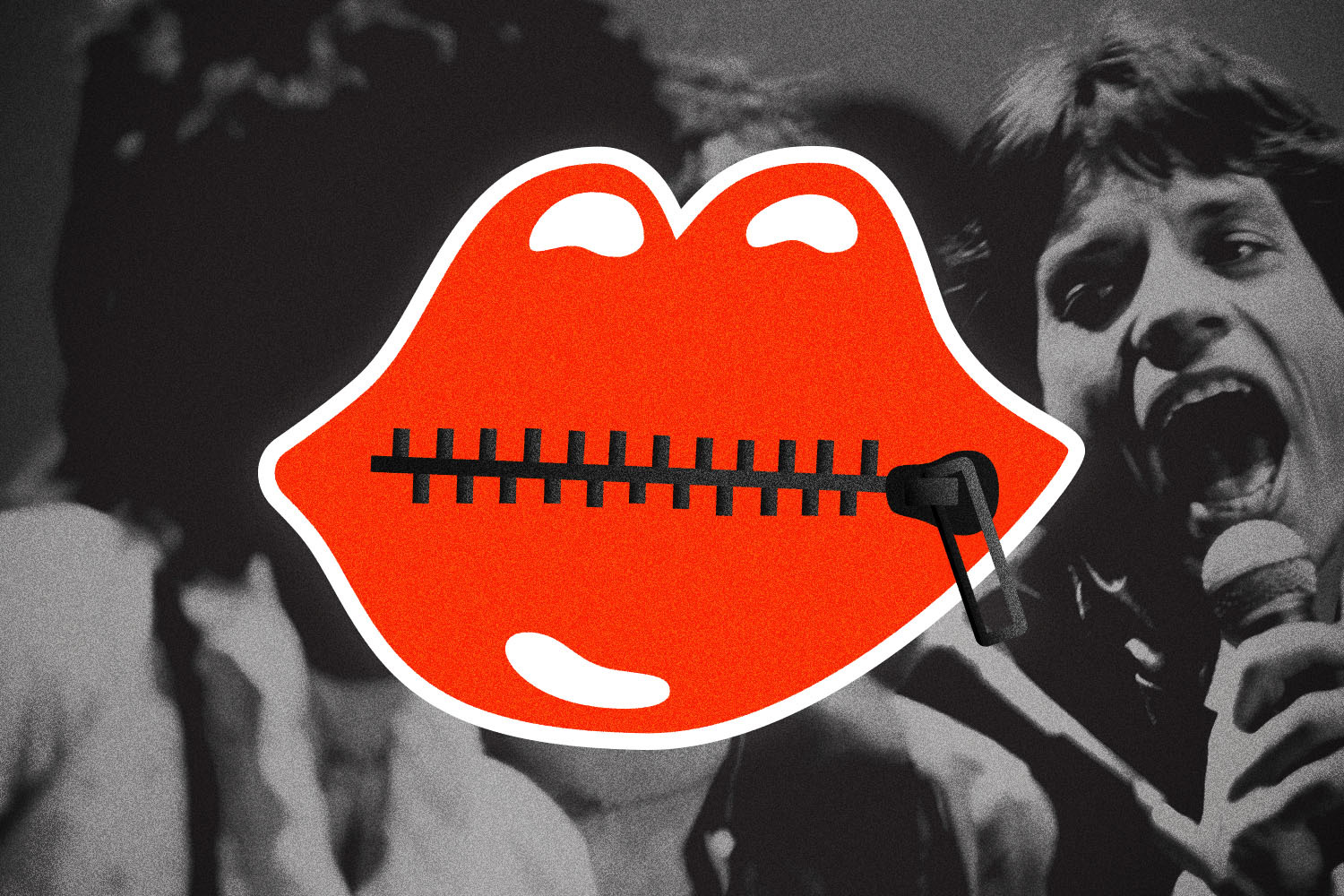The first truly great moment on the Rolling Stones’ 1972 masterpiece Exile on Main St. comes about halfway through its opening track, after “Rocks Off” takes a brief distorted, psychedelic left turn as Mick Jagger perhaps pulls a little inspiration from his famously strung-out bandmate Keith Richards as he sings, “Feel so hypnotized, can’t describe the scene/Feel so mesmerized, all that inside me.” Eventually, the song reaches a crescendo and a deceptively joyful-sounding Jagger declares, “The sunshine bores the daylights out of me.”
It’s not just clever wordplay; that line and the way Jagger delivers it serve as the perfect embodiment of the record and its fraught recording process. It sounds like a party, but the lyrics — about a jaded junkie who can only get his rocks off when he’s sleeping — tell us a much darker story. It’s impossible to hear it and not feel like you’re right there with the Stones in the south of France during one of their infamous 8 p.m.-to-3 a.m. recording sessions as they escaped their U.K. tax problems and pieced together what would become their most beloved album.
“Whether it’s the greatest song on the album or not, it’s the room you first enter when you walk into the villa, and it sets the tone so well,” Tim Baker, singer-songwriter and frontman of the indie rock band Hey Rosetta! tells InsideHook. “The hard-panned guitars, so loose and energetic and seemingly unconcerned with what one-another is playing; similarly the vocals, always a gang shout-singing, a not-yet-fully-agreed-upon melody; the honky tonk pianos, the blasty horns — everything loose and vibrant and immediate, underpinned by a solid rhythm section who haven’t had quite as much to drink yet. It’s the sound of the record — the night you’re about to have. Already you ‘feel so hypnotized, can’t describe the scene’ and it’s about to get a lot crazier.”
Exile is a double-LP, and though it’s a cohesive work with both of their fingerprints all over it, in many ways it does contain two very distinct halves — the basic tracks that were laid down at Richards’s French villa, Nellcôte, during the famously ramshackle sessions where Jagger, Charlie Watts and Bill Wyman were often absent as they grew increasingly uncomfortable with other more hard-partying band members and hangers-on’s heroin use, and the Jagger-led overdubs that were completed at Los Angeles’s Sunset Sound Recorders. It’s a record full of contradictions — loose and lush, fun but weary. It sounds as though at any moment it could go flying off the rails, but miraculously it never does; it’s a classic that has no business being as great as it is.
“When you look at the circumstances surrounding this record, it’s baffling as to why it turned out so great,” Tyler Jordan, lead singer of Austin’s buzzy Good Looks, says. “Keith Richards is struggling with a heroin addiction and it’s a non-stop party at Nellcôte, the 16-room mansion where the Stones were making this record. They recorded it in a basement with a mobile recording truck. The band can’t seem to all show up at the recording studio at the same time. The odds seemed to be stacked against them, but the result is perhaps the greatest rock ‘n’ roll record of all time.”
Jagger himself, however, isn’t entirely convinced they pulled it off. “Exile is not one of my favorite albums, although I think the record does have a particular feeling,” he said in 2003. “I’m not too sure how great the songs are, but put together it’s a nice piece. However, when I listen to Exile it has some of the worst mixes I’ve ever heard. I’d love to remix the record, not just because of the vocals, but because generally I think it sounds lousy. At the time Jimmy Miller was not functioning properly. I had to finish the whole record myself, because otherwise there were just these drunks and junkies. Of course I’m ultimately responsible for it, but it’s really not good and there’s no concerted effort or intention.” (One has to wonder how much his dissatisfaction with it has to do with how low his vocals are in the mix.) And yet, generations of fans — many of whom formed bands of their own and pulled inspiration from Exile — have embraced it as their best work for half a century now.
“Exile is a whole world unto itself,” Low Cut Connie frontman Adam Weiner says. “It’s dark and light, hard and soft. It’s got all the contortions of a great novel. ‘Tumbling Dice’ to me is a masterpiece, and it’s been extremely influential on me. I remember listening to it when we were cutting my song ‘Boozophilia’ to try to get that laid-back but heavy thing they do so well. That groove is un-fuck-with-able, and the lyricism is so breezy. The music has a sadness to it but the voice is sort of light and free. I think it’s the most soulful rock ‘n’ roll record ever.”
That soul, inspired partly by a visit from Jagger and Watts to the New Temple Missionary Baptist Church in Los Angeles to watch Aretha Franklin record Amazing Grace, is part of what makes Exile so timeless, but really, it spans genres, bringing in the band’s blues and country influences.
“Exile On Main St. is all sweat and swagger,” Jordan says. “I’m not sure what the temperatures are like in Southern France where most of this double LP was recorded while the Stones were evading the taxman back in England, but it’s certainly sweltering in the Southern United States, which is the geographic location this album is soaked in, from Black Southern gospel, soul and blues to working-class country. Some folks complain that the vocals are too low in the mix, but my pro tip is to listen to this album through a nice pair of headphones. It helps spread out the layers of this dense recording.”
It’s impossible to single out a few highlights from its 18 tracks, because there’s something there for just about everyone to latch onto; ask four people for their personal favorite, and you’ll likely get four different answers. For Donita Sparks, co-founder of the legendary L7, it’s “Sweet Virginia.”
“Aside from the great vocals, lyrics, and composition, the arrangement and build on this one is indeed a seductive ride,” she says. ” It takes you from a lonesome harmonica to a stomping, rowdy roadhouse religious experience — until you’re singing about scraping shit off your shoes at the top of your lungs. What a classic — even the cover art holds up. The Stones exploring something new and mastering it like they always do.”
“It’s hard to pick a favorite song off of this record, but I think mine might be ‘Torn and Frayed,’” Jordan adds. “The way the background vocals swell and release on the choruses feels like breathing. And when the pedal steel starts to crescendo at the very end of the song it gives me chills every time. [It] fully rips.”
Ultimately, whichever songs you happen to find yourself gravitating to the most, Exile stands as one of the greatest albums of all time — rock or otherwise — and it delivers on the promise hinted at on “Rocks Off.” Even if you strip away all the lore surrounding it, it holds up remarkably. But as Baker points out, why would you want to divorce the Stones’ magnum opus from the very specific moment in the band’s history that birthed it?
“There are a lot of mythical rock stories out there, especially in the wild days of the 1970s,” he says. “A lot of them are overblown, foolish, frankly irrelevant to the music. But the stories of the Exile On Main St. sessions — the band living as outlaws in a French villa, partying to excess, recording all night — they seem a vital part of the album itself. The record sounds like a party. It’s so raucous, messy, alive. It staggers from song to song as if from room to room in the hotboxed villa itself. Of course it’s intentional, orchestrated, made with all the nicest mics and pres and gear of the day, but maybe even bolder for being so: to choose to make something with so little ‘studio’ in it, so little polish, was to reimagine what a studio record could sound like, and it has had profound impacts all the way up to the present day, certainly on me. For me, raised here in Newfoundland, where music and partying are so inseparable in real life but so rarely meet on record, Exile On Main St. has always felt so real to me, so energetic, so right on. To push your real world into your recordings like this is so deep, so cool, and often, as in this case anyway, fun as hell.”
This article was featured in the InsideHook newsletter. Sign up now.


















![[L-R] Bill Berry, Michael Stipe, Mike Mills and Peter Buck of R.E.M. at the Aragon Ballroom in Chicago, Illinois on July 7, 1984.](https://www.insidehook.com/wp-content/uploads/2024/12/rem-book-interview.jpg?resize=750%2C750)




